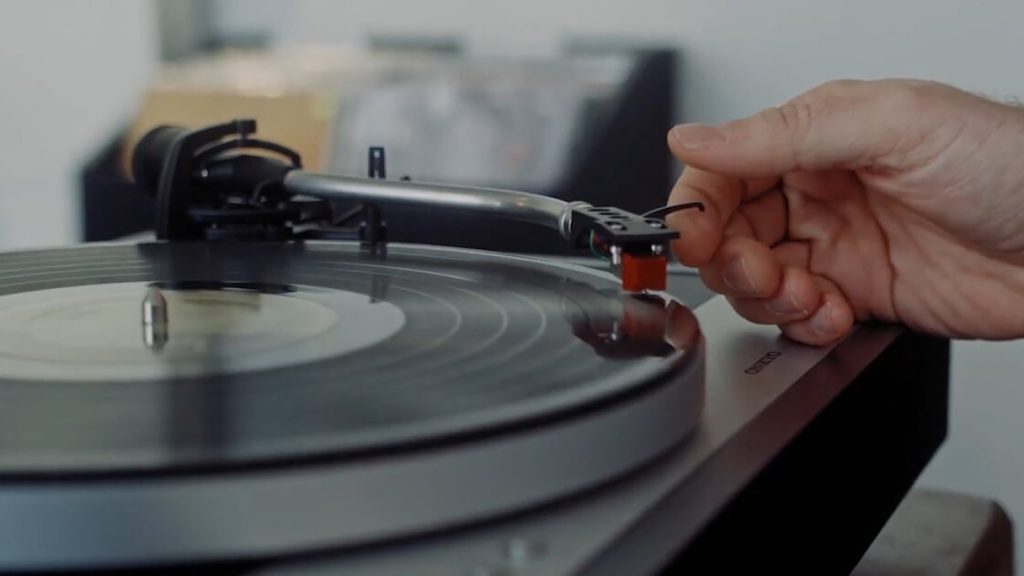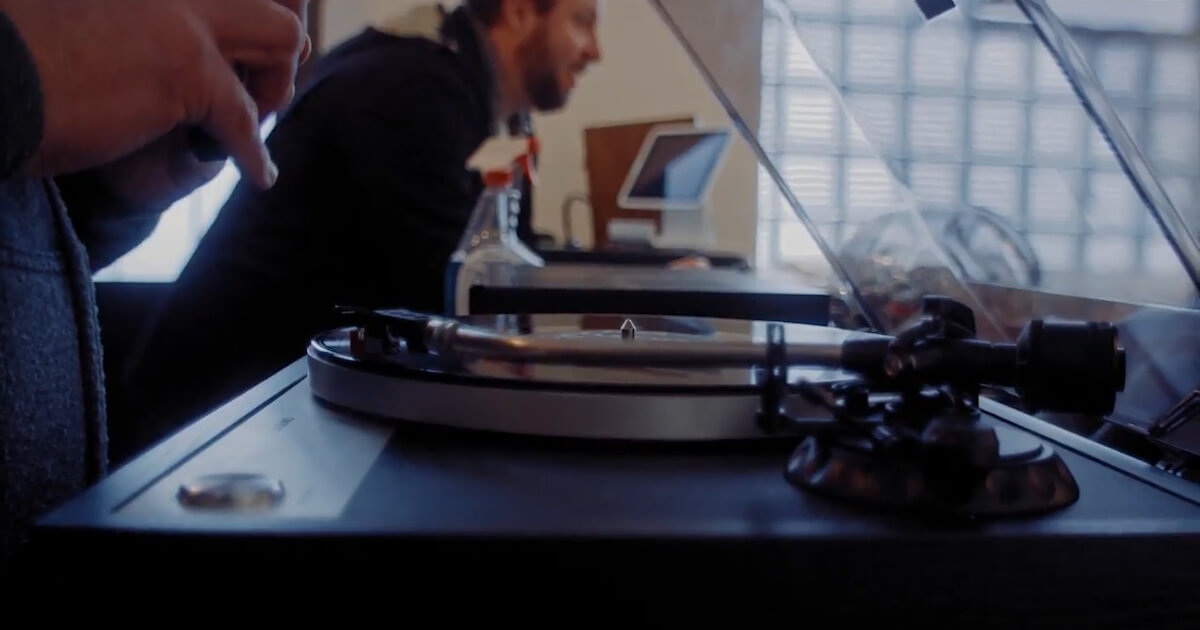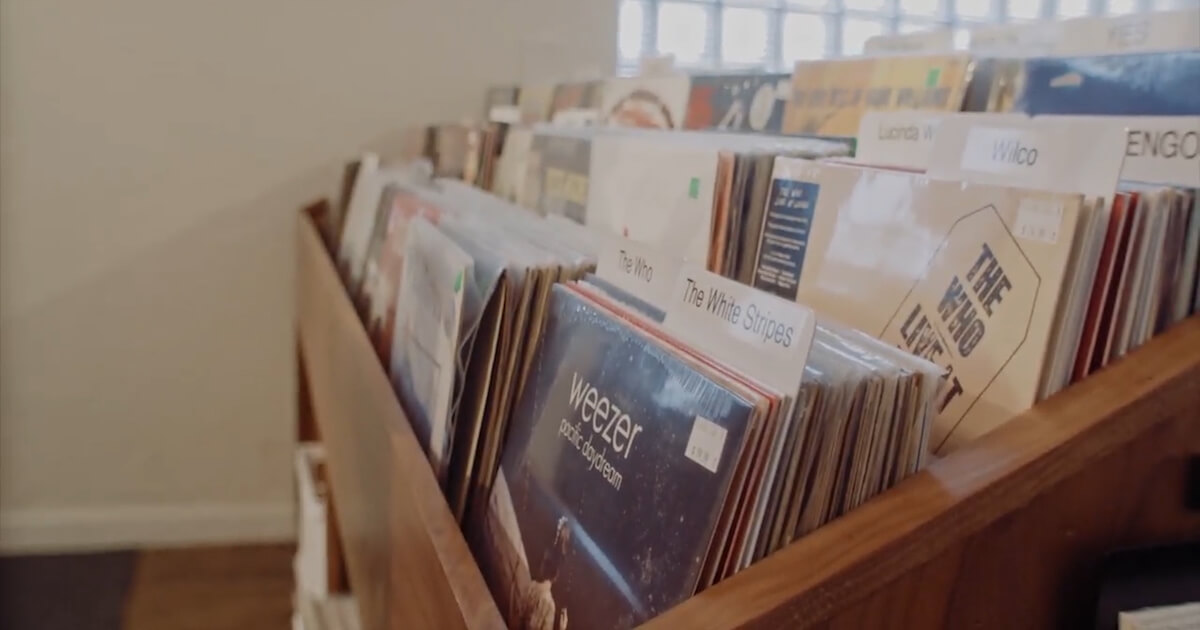
By Katie Moritz | Rewire
When I was growing up, my dad and I would sit in our “computer room” and listen to records together—the room also housed my dad’s old turntable and stereo equipment. My bedroom was next door, and I’d often stay up to flip through the albums he had chosen to unearth from storage, studying the cover art (The Cars’ self-titled album was my favorite) and memorizing the track names. I made my dad promise that I’d inherit the turntable and all of his records. To little me, there was nothing cooler than his collection.
Then I left for college and, later, moved around the country. A music collection is a hard thing to haul around, and I found myself mostly streaming in order to scratch my music itch while keeping my load as light as possible. But, after living in one place for a little more than two years, and also impulse-buying a pink floral record player on clearance, I’ve tried to build up a small collection of my own (seeded, of course, with vinyl from my dad). In addition to the nostalgia factor, there’s something special about listening to music on vinyl—and a lot of people are flocking back to the medium because of that.
But when you’re trying to build a collection, where do you start? Shopping a record store can be overwhelming if you don’t have a clear goal in mind, and not every town has a record store to begin with.
I talked with Raoul Benavides, owner of Flashlight Vinyl in Minneapolis, about his tips for getting started. The good news: A great collection doesn’t have to cost as much as you might think, and you don’t have to be the main character of “High Fidelity” to find good stuff.
1. Go for compilations
Want to get a lot for a little and beef up your collection’s range in one fell swoop? Shop the soundtrack and compilation sections at your local record store, or seek them out at your favorite thrift store.

If you’re trying to figure out what direction you want your collection to go in, or just learn about new music without making a big investment, albums that can expose you to a bunch of different artists at once offer a great value.
“Say if (you’re) interested in getting into disco, or a certain genre, like funk or soul, a various artist record, like a best-of record… is a nice way to do a wide swath over a genre,” Benavides said. “(It’s) a nice way to spread your consciousness about certain artists or genres without spending a lot of money.”
If you recognize one or two songs or bands on the back of the album, great. That might mean you’ll be into the other stuff on there, too.
“(Movie) soundtracks are an amazing source for that—soundtracks are huge right now in vinyl,” Benavides said. Soundtracks from classic movies of the ’80s and ’90s are especially popular.
“Think about Quentin Tarantino (movies), they’re really well scored and the soundtrack was amazing. … It’s a nice way to get some hits from people you don’t know, (or) some you do know and some you don’t know.”
2. Be open to digging
Spend some time digging through bins at thrift stores and record stores, looking for stuff that excites you—especially the bargain bins, if you’re on a budget. Don’t be afraid to go in without an agenda and pick up whatever looks interesting to you. It might feel intimidating at first, but finding a diamond in the rough might be exhilarating enough to get you hooked.

“This is about happiness at the end, and it’s really important to use your judgement about the aesthetic, too,” Benavides said. “If it feels good, it usually is. If the design feels like something you like, if it’s modern, if it feels like art rock, it probably is.”
Taking a chance on records that intrigue you doesn’t have to be a big investment. Even with demand for vinyl rising, Benavides’ store has about 50,000 records for sale for $3. Many thrift stores sell vinyl for a dollar or less. If you’re willing to put in a little time, you can find exciting music without spending much at all. Think of it as a small investment in your happiness.
“I think it’s also important to think about the record in comparison to a cup of coffee—a cup of coffee is three and a half, four dollars,” Benavides said. “Your relationship to music is so much bigger, it’s a whole different thing, it’s not like a one hit wonder. It’s important for people to take a chance on music. … If it’s 50 cents or a dollar or three dollars, if it feels good, it’s only three bucks.”
3. Look at the corners
When you come across an album that intrigues you, look at the corners of the cover. If they look banged up, the record’s probably not in great condition, either. If the cover is in excellent condition, the vinyl probably is, too, Benavides said.
But just because a record is a little scratched up doesn’t mean it’s not worth getting, especially if it’s really cheap. Even if a couple songs skip, you’d still get to enjoy the bulk of the album. And you can always replace it with a more pristine version if you come across one down the line, he said.
“For people who are starting, I would rather get a rough, cheap copy of Led Zeppelin and work my way up,” Benavides said. “I keep a little stack of stuff that’s kind of beat up and I’ll try to sell it or give it away (as I find replacements).
“If you think about records and music, we’re talking about a relationship. If you’re interested in something, like The Beatles’ ‘White Album,’ and you’re planning to have a long relationship with it, it’s okay to get a beat up one if it meets your financial needs. Then you can replace it when the time is right.”
4. Don’t worry about “value”
If you, like me, are an “Antiques Roadshow” fan and fantasize about stumbling across valuable rarities at Goodwill, that’s fine. Benavides even recommended an app, Discogs, that can help you identify valuable records as you shop. But don’t let the potential monetary value of the albums you’re finding guide what you buy and don’t buy, he said.
Buy the albums that you feel a spark of connection with when you pull them out of the crate at the thrift store, whether it’s something new to you, or an old, forgotten favorite.
“People always talk about value, but it’s not worth anything unless you’ve sold it,” he said. “I always think that records in general, these are all items that are emotional triggers. … It’s not all about money. It ends up being what it’s worth to you so much more.”
![]() This article originally appeared on Rewire.
This article originally appeared on Rewire.
© Twin Cities Public Television - 2018. All rights reserved.
Read Next



